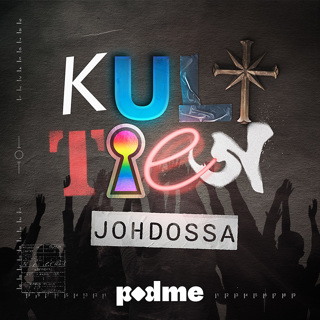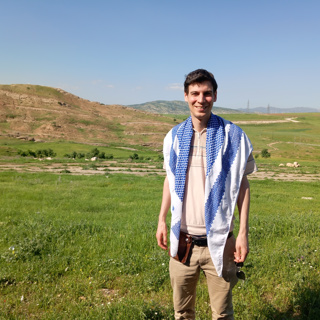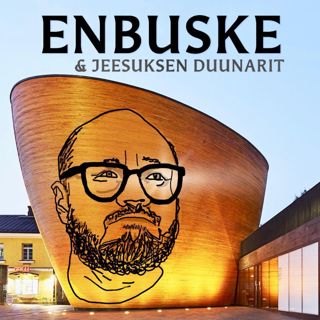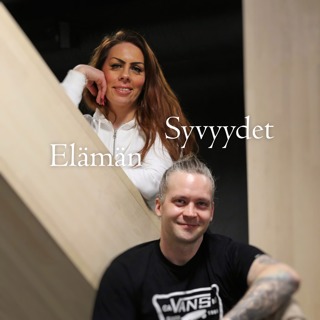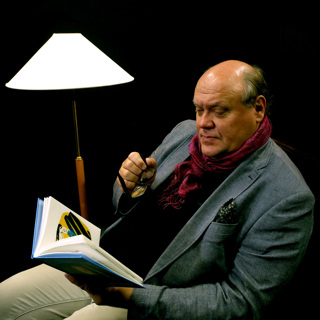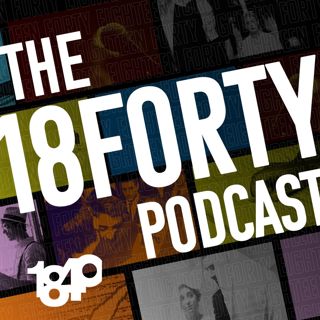
What Is Happening With Jewish Students and Antisemitism?
In this episode of the 18Forty Podcast, we talk to journalist Matti Friedman, author of Who By Fire: Leonard Cohen in the Sinai, about how the Israel-Hamas war is (mis)understood globally. Additionally, we speak to a series of students and educators about the state of antisemitism on school campuses. Special thanks to these guests: Moshe, Micah Greenland, Derek Gormin, Ben Spanjer, Nati Stern, and Celeste. In this episode we discuss:What gets lost in translation when we superimpose Americanized notions of racism and colonialism onto the Middle East? What drew Leonard Cohen to go to Israel during the Yom Kippur War? What help is being offered right now to Jewish students in American public schools?Tune in to hear a conversation about Jewish identity, moral clarity, and human resilience in times of crisis. Interview with Matti Friedman begins at 11:45.Campus interviews begin at 37:46.Matti Friedman’s work as a reporter has taken him from Lebanon to Morocco, Cairo, Moscow and Washington, D.C., and to conflicts in Israel and the Caucasus. He has been a correspondent for the Associated Press, and his writing has appeared in the Wall Street Journal, the New York Times, Tablet Magazine, and elsewhere. He grew up in Toronto and lives in Jerusalem. The Aleppo Codex, his first book (Algonquin, 2012) won the 2014 Sami Rohr Prize and the ALA's Sophie Brody Medal, among other honors. His second book, Pumpkinflowers: A Soldier's Story (Algonquin, May 2016) won starred reviews in Kirkus, Booklist, Publishers Weekly, and Library Journal, and was compared by the New York Times to Tim O'Brien's masterpiece The Things They Carried.References:Spies of No Country: Secret Lives at the Birth of Israel by Matti Friedman Who By Fire: Leonard Cohen in the Sinai by Matti Friedman “Who by Fire” by Leonard Cohen“Who by Fire” by Rufus Wainwright and Amsterdam SinfoniettaThe Aleppo Codex: In Pursuit of One of the World’s Most Coveted, Sacred, and Mysterious Books by Matti Friedman “An Insider’s Guide to the Most Important Story on Earth” by Matti Friedman “Israel’s Problems Are Not Like America’s” by by Matti Friedman Anti-Judaism: The Western Tradition by David Nirenberg“The Decolonization Narrative Is Dangerous and False” by Simon Sebag Montefiore“Leonard Cohen speaks about G-d consciousness and Judaism (1964)”“The Anguished Fallout from a Pro-Palestinian Letter at Harvard” by Eren Orbey“We Stand Together With Israel Against Hamas”“Modernity and Messiah: On Parshas Noach and the Human Capacity for Revolution” by David Bashevkin“Why Jews Cannot Stop Shaking Right Now” by Dara HornBecome a supporter of this podcast: https://www.spreaker.com/podcast/18forty-podcast--4344730/support.
7 Marras 20231h 50min

Daniel Statman: Can War Be Moral? On Moral Philosophy and War
In this episode of the 18Forty Podcast, we talk to Daniel Statman, a professor of philosophy at the University of Haifa, about what it means to wage a moral war.Professor Statman helped revise Ruach Tzahal, the IDF’s code of ethics, which outlines the values that determine what the IDF can and can’t do during a war. Understanding these specifics is vital in a time when there is so much at stake morally and the Israeli army receives so much (often uninformed) criticism. In this episode we discuss:How does an Israeli moral philosopher react to the recent terror attacks and their repercussions?What are the ethics of fighting a war in a civilian-populated area?What can Avraham Avinu teach us about restraint in battle?Tune in to hear a conversation about the complexities of the permissions of war.Interview begins at 10:46.Daniel Statman chairs the philosophy department at the University of Haifa, Israel. His recent books are State and Religion in Israel (Cambridge 2019, with Gidi Sapir) and War By Agreement (Oxford 2019, with Yitzhak Benbaji).References:Homegrown: Timothy McVeigh and the Rise of Right-Wing Extremism by Jeffrey ToobinRuach TzahalGenesis 18Just and Unjust Wars by Michael WalzerWar By Agreement by Yitzhak Benbaji and Daniel StatmanRemarks by the President at the Acceptance of the Nobel Peace Prize“War Is a Very Ugly Thing but Not the Ugliest” by Dov LernerBecome a supporter of this podcast: https://www.spreaker.com/podcast/18forty-podcast--4344730/support.
31 Loka 20231h 2min

The Trauma of War: Mental Health Professionals in Israel
In this episode of the 18Forty Podcast, we talk about mental health amid the current war with Dr. Danny Brom of Metiv, Mike Meyerheim and Susan Cohen of KeepOlim, Rabbi Reuven Taragin of Acheinu, Dr. Ayala Dayan, Dr. Jacob Freedman, and three students spending a gap year in Israel. In this episode we discuss:What is the science of war-induced trauma? How can we meet the emotional needs of “lone soldiers”?How can we maintain unity during frightening times?Tune in to hear a conversation about the resiliency that has enabled the Jewish people to stay together for millenia.Interview with Danny Brom begins at 7:55. Interview with Mike Meyerheim and Susan Cohen begins at 32:66.Message from Ayala Dayan begins at 51:38.Interview with Reuven Taragin begins at 1:00:20.Interviews with students begin at 1:08:56.Interview with Jacob Freedman begins at 1:13:43.References:MetivPsalms 126KeepOlimAcheinu Tuesdays with Morrie by Mitch AlbomLiving in the Presence: A Jewish Mindfulness Guide to Everyday Life by Benjamin Epstein Mindfulness: A Jewish Approach by Dr. Jonathan FeinerOff The Couch by Jacob L. Freedman Me and Uncle Baruch by Jacob L. Freedman Reading Jewish History in the Parsha with David BashevkinBecome a supporter of this podcast: https://www.spreaker.com/podcast/18forty-podcast--4344730/support.
24 Loka 20231h 29min

Voices from Israel
In this episode of the 18Forty Podcast, we listen to the voices of several of our brothers and sisters in Eretz Yisrael, including Naama, Tania Hammer, Gedalia Zemel, Rabbi Dov Fendel, Rav Elyada Goldvicht, Rabbanit Rachelle Fraenkel, Jeremy and Emily Tibbetts, Sruli Fruchter, and our dearest friend Denah Emerson.In light of the terror attacks, everyone in Israel has been called to help in whatever way possible, and they’ve proven that heroism is a team effort and can take place in unexpected forms. In this episode we discuss:How do we stay collectively anchored during upside-down times?Does God cry?How can we stay strong in the face of crisis?Tune in to hear the stories of those who have been on the ground during this transformative event. Guest messages begin at 16:54. References:Numbers 10Jerusalem Talmud: Shekalim 6 Chagigah 5b Psalms 30To support the incredible work of our guests like Tania and get much needed supplies to chayalim, please consider a donation to the Michael Levin Lone Soldier Center.Become a supporter of this podcast: https://www.spreaker.com/podcast/18forty-podcast--4344730/support.
17 Loka 20231h 17min

Reading Jewish History in the Parsha
This podcast was recorded before the recent horrific terrorism against Israel and unspeakable atrocities inflicted upon the Jewish People. We decided to share this Torah initiative now to encourage learning the parsha each week for the protection and success of the State of Israel. Am Yisrael Chai.This episode is sponsored by Janet and Lior Hod and family, with immense gratitude to Hashem.In this episode of the 18Forty Podcast, we introduce our new initiative “Reading Jewish History in the Parsha.” Each week, David Bashevkin will take you through the original "I Read This Over Shabbos," in this series of shiurim and essays on the All Parsha app and on Substack. Here, we speak to Rabbi Moshe Schwed, creator of All Parsha. Tune in to hear about shnayim mikrah and the art of translation. Interview with Moshe Schwed begins at 28:55.Rabbi Schwed serves as the Director of the OU Daf Yomi Initiative. After receiving semicha from Beth Medrash Govoha, Rabbi Schwed taught in Yeshiva Gedolah Kesser Torah. Rabbi Schwed is an alumnus of Yeshivos Long Beach and Brisk.References:Why Pick On Me? by Louis SacharMolly's Pilgrim by Barbara Cohen@ShabbosReadsShulchan Arukh, Orach ChayimExodus 1:1 Megillah 9a Printer's Error: Irreverent Stories from Book History by Rebecca Romney The Art of Bible Translation by Robert Alter The Living Torah by Aryeh Kaplan Community, Covenant And Commitment: Selected Letters And Communications by Joseph B. SoloveitchikLikutei Moharan 19Tiferet Yisrael 13Become a supporter of this podcast: https://www.spreaker.com/podcast/18forty-podcast--4344730/support.
11 Loka 20231h 3min

Pray for Israel
In times like these, it feels impossible to find words. No individual has words to describe this horror, but we—the Jewish People—do have words.We turn to the only words we have left: words of prayer, of comfort, of our prophets, and of Torah. We are with Israel in love, support, and prayer. May God protect the Jewish People.Become a supporter of this podcast: https://www.spreaker.com/podcast/18forty-podcast--4344730/support.
9 Loka 202320min
![Estrangement and Reconciliation: Teshuva for Our Relationships [Teshuva 5/5]](https://cdn.podme.com/podcast-images/D79089FBEF78B78B9B1A2A8AFD27F6A1_small.jpg)
Estrangement and Reconciliation: Teshuva for Our Relationships [Teshuva 5/5]
This series is sponsored by Mira and Daniel Stokar, and this episode is sponsored by Dr. Leah Younger of Younger Psychology.In this episode of the 18Forty Podcast, we talk to psychologist Dr. Joshua Coleman, about the nuances of familial estrangement and reconciliation. Then, we hear from mindset coach Jason Blau and translator Izzy Posen about how these issues play out within the Jewish community. In this episode we discuss:What strategies can be employed by families carrying the burden of strife and negativity?What are the common triggers of family estrangement, and how can those in strained relationships move forward?What is the role of family in a world of optionality?Tune in to hear a conversation about how we can make peace with the “ghosts” of our past. Interview with Joshua Coleman begins at 8:54.Interview with Jason Blau begins at 54:42.Interview with Izzy Posen begins at 1:15:42.Dr. Joshua Coleman is a psychologist in private practice and a Senior Fellow with the Council on Contemporary Families, an organization of sociologists, historians, psychologists and demographers dedicated to providing the public with the latest research and best practice findings about American families. He has written for The New York Times, The Atlantic, and other publications, and often speaks on television about issues of estrangement, relationships, and families. Dr. Coleman also writes music for television which has been used on many shows. References:“Of Ghosts and Ancestors” by Ari Berman“The Power of Vulnerability” by Brené BrownWhere to Draw the Line: How to Set Healthy Boundaries Every Day by Anne Katherine Why Won't You Apologize?: Healing Big Betrayals and Everyday Hurts by Harriet LernerThe Dance of Anger: A Woman's Guide to Changing the Patterns of Intimate Relationships by Harriet LernerRules of Estrangement: Why Adult Children Cut Ties and How to Heal the Conflict by Joshua ColemanWhen Parents Hurt: Compassionate Strategies When You and Your Grown Child Don't Get Along by Joshua Coleman“The Family Reunion” by Izzy PosenGenesis 46“הַמַּלְאָךְ" by Izzy Posen"Daddy Come Home" by The Yeshiva Boys ChoirBecome a supporter of this podcast: https://www.spreaker.com/podcast/18forty-podcast--4344730/support.
19 Syys 20231h 49min
![Rabbi Michael Rosensweig: The Majesty of Torah Study [Teshuva 4/5]](https://cdn.podme.com/podcast-images/D79089FBEF78B78B9B1A2A8AFD27F6A1_small.jpg)
Rabbi Michael Rosensweig: The Majesty of Torah Study [Teshuva 4/5]
This series is sponsored by our friends Mira and Daniel Stokar.In this episode of the 18Forty Podcast, we talk to Rabbi Michael Rosensweig, a Rosh Yeshiva and the Rosh Kollel of the Beren Kollel Elyon at RIETS, about how we can return as a people to the world of Torah study. Rabbi Rosensweig is the author of the recently published book Mimini Mikhael - Essays on Yom Kippur and Teshuvah, which is the centerpiece of this conversation. In this episode we discuss: How does teaching Torah to a broad audience compare with teaching high-level students?What should we hope to achieve on Yom Kippur?What is the relationship between Rosh Hashanah and Yom Kippur?Tune in to hear a conversation about how a teshuva sheleima begins with a return to the majesty of Torah.Interview begins at 11:47.Rabbi Dr. Michael Rosensweig is a Rosh Yeshiva and the Rosh Kollel of the Beren Kollel Elyon at the Rabbi Isaac Elchanan Theological Seminary (RIETS) at Yeshiva University. Rabbi Rosensweig is one of the foremost Talmudists in the world today, and studied under Rabbi Joseph B. Soleveitchik and Rav Aharon Lichtenstein. Rabbi Rosensweig received his M.A. and Ph.D. in Medieval Jewish History from the Bernard Revel Graduate School of Jewish Studies, where he wrote his dissertation under Rabbi Dr. Haym Soloveitchik. References:Mimini Mikhael - Essays on Yom Kippur and Teshuvah by Rabbi Dr. Michael RosensweigHalakhic Man by Rabbi Joseph B. SoloveitchikSefer Mishnas Avraham by Avraham Aharon Price Sefer Madda by MaimonidesHosea 14Nefesh HaChayim, Gate IV, 31 by Chaim of Volozhin“Elu va-Elu Divre Elokim Hayyim: Halakhic Pluralism and Theories of Controversy” by Michael RosensweigBecome a supporter of this podcast: https://www.spreaker.com/podcast/18forty-podcast--4344730/support.
12 Syys 20231h 36min




